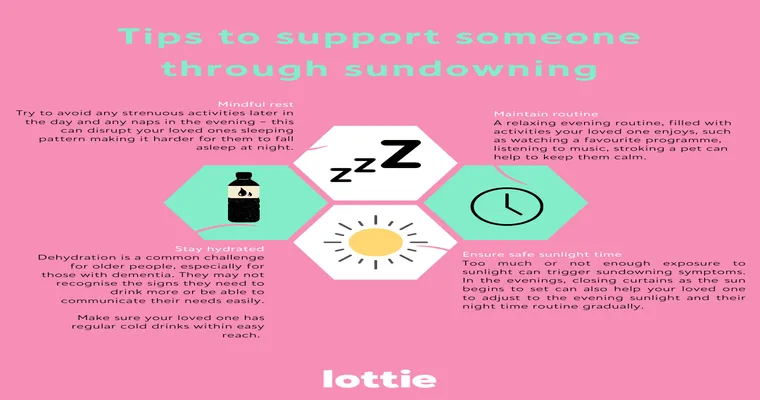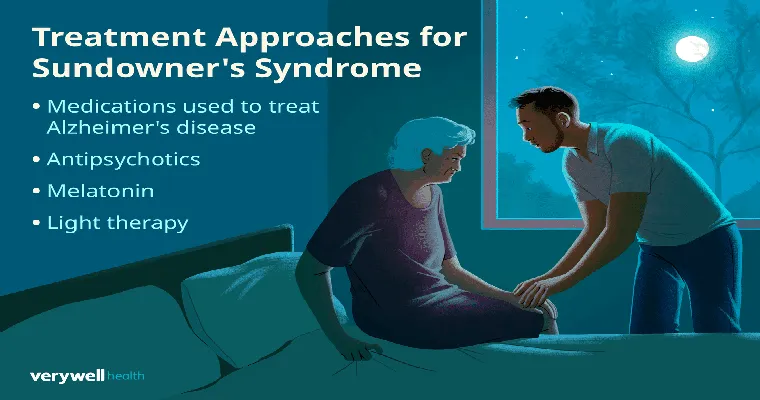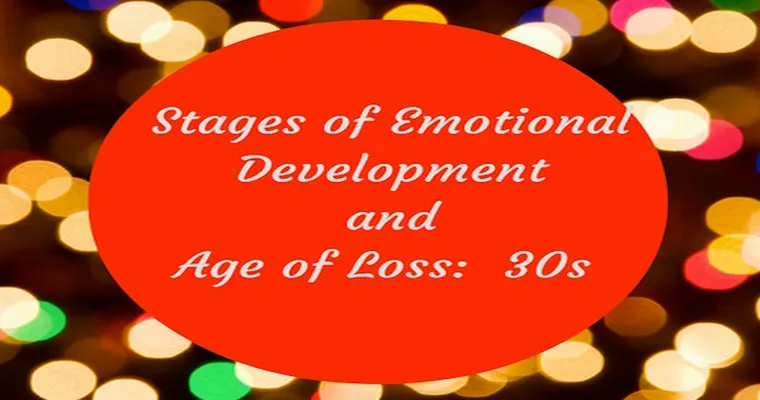"Sundowning" is a phenomenon often associated with "Alzheimer's disease" and other forms of "dementia". It refers to a pattern of increased confusion, agitation, and anxiety that typically occurs in the late afternoon or evening. This behavior can be distressing for both caregivers and those experiencing it. Understanding the causes, symptoms, and effective coping strategies is essential for managing this condition and improving the quality of life for both patients and caregivers.
The exact causes of "sundowning" are not entirely understood, but several factors may contribute to its onset. Changes in the body's internal clock, fatigue, and the setting sun can all play a role in triggering symptoms. As the day progresses, individuals with dementia may become more tired and less able to process information, leading to increased confusion. Additionally, changes in lighting conditions can create shadows and unfamiliar shapes, heightening anxiety and disorientation.
Symptoms of "sundowning" can vary but often include increased irritability, restlessness, and difficulty concentrating. Individuals may also exhibit signs of aggression or delusions, making it challenging for caregivers to manage their behavior effectively. This escalation of symptoms can lead to stressful situations, not only for the individual but also for family members and caregivers who are trying to provide support.
To effectively cope with "sundowning", caregivers can implement several strategies. First and foremost, establishing a consistent daily routine can help reduce anxiety and confusion. Having regular meal times, activities, and bedtime can provide a sense of stability for individuals with dementia. Additionally, creating a calm and comfortable environment during the late afternoon and evening hours is crucial. Dimming lights, reducing noise, and minimizing clutter can help alleviate feelings of agitation.
Engaging individuals in soothing activities, such as listening to calming music or practicing gentle exercises, can also be beneficial. Providing reassurance and maintaining a positive attitude can help ease their fears and reduce agitation. It’s essential for caregivers to remain patient and understanding, as this can significantly impact how the individual responds during these challenging times.
In conclusion, "sundowning" is a complex behavior associated with dementia that can cause significant distress. By understanding its causes and symptoms, caregivers can implement effective strategies to manage this condition. Establishing a routine, creating a soothing environment, and engaging in calming activities can make a substantial difference in improving the overall well-being of individuals experiencing "sundowning". With the right approach, caregivers can navigate these challenges and provide the support needed during these difficult times.





